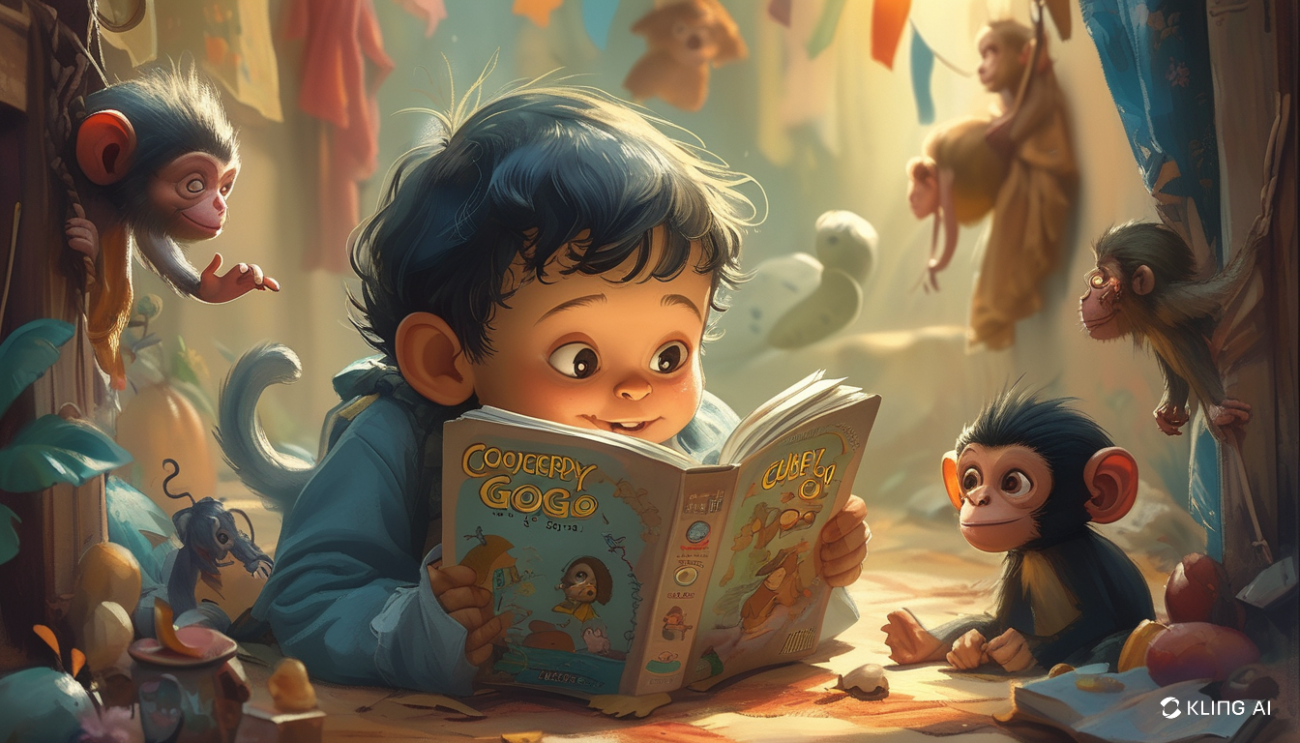Hey there! Let’s dive into the wonderful world of Islamic children’s books. Picture this: a cozy reading nook, a child’s eyes wide with wonder, and a story that opens the door to a world rich with faith, culture, and tradition. That’s what Islamic children’s books are all about! They serve as a fantastic tool for introducing little ones to Islam in a way that’s engaging, educational, and fun.
Why Islamic Children’s Books Matter
When it comes to storytelling, Islamic children’s books do more than just entertain. They play a crucial role in helping young readers understand their cultural and religious heritage. These books are crafted to nurture a child’s curiosity and instill values like kindness, honesty, and empathy. Through stories, children learn about the teachings of Islam, the lives of prophets, and the significance of various Islamic traditions and holidays.
Who Are Islamic Children’s Books For?
Islamic children’s books are perfect for Muslim families looking to provide their kids with literature that reflects their beliefs and values. But that’s not all! They are a fantastic resource for anyone interested in exploring different cultures and religions. With vibrant illustrations and captivating stories, these books offer a beautiful glimpse into the Islamic world, making them a valuable addition to any child’s bookshelf.
What Makes a Great Islamic Children’s Book?
So, what should you look for in an Islamic children’s book? Here are a few key ingredients that make for a delightful reading experience:
- Engaging Storylines: The story should captivate the reader’s attention with relatable characters and intriguing plots.
- Age-Appropriate Content: Ensure the themes and language are suitable for the child’s age and comprehension level.
- Educational Value: The book should offer insights into Islamic teachings, history, or culture in an age-appropriate manner.
- Beautiful Illustrations: Eye-catching illustrations not only enhance the storytelling but also help convey complex concepts with ease.
- Positive Messages: Look for books that promote virtues such as kindness, honesty, respect, and empathy, aligning with Islamic values.
Benefits for Parents and Kids
For parents, Islamic children’s books offer an opportunity to bond with their child over shared stories and discussions about faith and values. Reading together not only strengthens family ties but also encourages kids to ask questions and develop a deeper understanding of Islam. The stories can spark meaningful conversations, helping parents guide their children in a world full of diverse beliefs and traditions.
Children, on the other hand, gain a sense of identity and belonging. They see themselves reflected in the characters and scenarios, making them feel more connected to their faith and community. Moreover, these books foster a love for reading, which is a gift that keeps on giving!
So, whether you’re just starting to explore Islamic children’s literature or you’re a seasoned reader looking for the next great story, there’s a world of fascinating books out there waiting to be discovered. Happy reading!
Importance of Islamic Literature for Kids
Hey there! Let’s chat about something super exciting and meaningful—Islamic literature for kids. It’s not just about stories; it’s about opening doors to a world of culture, values, and morals all wrapped up in engaging tales. So, why is this literature so important for our little ones? Let’s dive in!
Building a Strong Moral Foundation
First things first, Islamic literature is an amazing way to build a strong moral foundation in children. The stories often revolve around core values like honesty, kindness, and respect, which are universal but have a special significance in Islamic teachings.
As your child reads these stories, they’re not just being entertained. They’re absorbing life lessons and ethical principles that will help shape their character. Think of it as planting the seeds of wisdom in their young minds. How cool is that?
Strengthening Identity and Belonging
For kids growing up in a multicultural society, feeling connected to their roots is super important. Islamic literature offers them a sense of belonging and strengthens their identity. It’s like having a piece of their heritage in their hands, beautifully illustrated and narrated.
Through these books, children learn about their traditions and the rich history of the Islamic world. It helps them understand who they are and where they come from, which boosts their confidence and self-esteem.
Promoting Cultural Awareness and Acceptance
But it’s not just for Muslim kids! Islamic children’s books can be a wonderful tool for promoting cultural awareness and acceptance among kids from all backgrounds. By exploring the diversity within Islamic stories, children learn to appreciate different cultures and perspectives. It’s a small step towards making the world a more understanding and inclusive place.
Sparking a Love for Reading
Let’s not forget the simple joy of reading! Islamic children’s books are often filled with vibrant illustrations and captivating storylines that can ignite a lifelong love for reading. With engaging narratives, children are whisked away on adventures while learning about important figures and events in Islamic history.
This love for reading can open doors to endless learning opportunities and help improve literacy skills. Who wouldn’t want that for their child?
Encouraging Family Bonding
Reading together is a fantastic way to bond as a family. Islamic children’s books can spark meaningful conversations between parents and children. You can discuss the themes, characters, and values portrayed in the stories, making it a shared learning experience.
Plus, it’s a beautiful way to spend some quality time together, creating memories that your child will cherish forever.
So, there you have it! Islamic literature for children is not just about reading stories; it’s about nurturing young hearts and minds in a way that’s both fun and profound. By introducing your child to these books, you’re giving them a precious gift—a chance to learn, grow, and connect with their world in a meaningful way.
Popular Themes in Islamic Children’s Books
When it comes to Islamic children’s books, there are a variety of themes that are commonly explored to help young readers learn about Islam in a fun and engaging way. These themes not only educate children about the faith but also promote values such as kindness, compassion, and empathy.
-
Islamic Holidays
Many Islamic children’s books focus on major Islamic holidays such as Eid al-Fitr and Eid al-Adha. These books not only explain the significance of these celebrations but also show how they are observed by Muslim families around the world.
2. Prophet Stories:
Stories about the prophets in Islam, such as Prophet Muhammad, Prophet Ibrahim, and Prophet Musa, are popular themes in Islamic children’s literature. These stories teach children important lessons about faith, perseverance, and obedience to Allah.
3. Islamic Values:
Books that focus on Islamic values like honesty, generosity, and respect for others are common in Islamic children’s literature. These stories often feature relatable characters who face moral dilemmas and learn valuable lessons along the way.
4. Diversity and Inclusion:
Many Islamic children’s books also highlight the importance of diversity and inclusion within the Muslim community and society as a whole. These books often feature characters from different cultural backgrounds and emphasize the beauty of unity in diversity.
5. Islamic History:
Books that explore the history of Islam, including the early Islamic civilizations, the Golden Age of Islam, and the contributions of Muslim scholars and scientists, are also popular themes in Islamic children’s literature. These books help children develop a sense of pride in their heritage and a deeper understanding of Islamic history.
6.Friendship and Family
Stories that focus on relationships, friendship, and family dynamics are another common theme in Islamic children’s books. These stories emphasize the importance of love, compassion, and support within the family unit and among friends.
By exploring these popular themes in Islamic children’s books, young readers can gain a better understanding of Islamic teachings, values, and history in a way that is both educational and entertaining. These books not only help children learn about their faith but also promote important values that are universal and timeless.
Popular Themes in Islamic Children’s Books
When it comes to Islamic children’s books, there are a variety of themes that are commonly explored to help young readers learn about Islam in a fun and engaging way. These themes not only educate children about the faith but also promote values such as kindness, compassion, and empathy.
- Islamic Holidays: Many Islamic children’s books focus on major Islamic holidays such as Eid al-Fitr and Eid al-Adha. These books not only explain the significance of these celebrations but also show how they are observed by Muslim families around the world.
- Prophet Stories: Stories about the prophets in Islam, such as Prophet Muhammad, Prophet Ibrahim, and Prophet Musa, are popular themes in Islamic children’s literature. These stories teach children important lessons about faith, perseverance, and obedience to Allah.
- Islamic Values: Books that focus on Islamic values like honesty, generosity, and respect for others are common in Islamic children’s literature. These stories often feature relatable characters who face moral dilemmas and learn valuable lessons along the way.
- Diversity and Inclusion: Many Islamic children’s books also highlight the importance of diversity and inclusion within the Muslim community and society as a whole. These books often feature characters from different cultural backgrounds and emphasize the beauty of unity in diversity.
- Islamic History: Books that explore the history of Islam, including the early Islamic civilizations, the Golden Age of Islam, and the contributions of Muslim scholars and scientists, are also popular themes in Islamic children’s literature. These books help children develop a sense of pride in their heritage and a deeper understanding of Islamic history.
- Friendship and Family: Stories that focus on relationships, friendship, and family dynamics are another common theme in Islamic children’s books. These stories emphasize the importance of love, compassion, and support within the family unit and among friends.
By exploring these popular themes in Islamic children’s books, young readers can gain a better understanding of Islamic teachings, values, and history in a way that is both educational and entertaining. These books not only help children learn about their faith but also promote important values that are universal and timeless.
Top Recommended Islamic Children’s Book Authors
When it comes to finding the best Islamic children’s books for your little ones, one of the key factors to consider is the author behind the words. A talented author can bring stories to life in a way that captivates young readers and instills valuable lessons and morals.
Here are some of the top recommended Islamic children’s book authors that you should definitely check out:
- Rukhsana Khan: Known for her beautiful storytelling and engaging narratives, Rukhsana Khan has written numerous children’s books that celebrate Islamic culture and values. Her stories are not only entertaining but also educational, making them a hit among young readers.
- Na’ima B. Robert: With a knack for writing captivating tales that resonate with children, Na’ima B. Robert is a highly acclaimed author in the world of Islamic children’s literature. Her books often explore themes of faith, identity, and diversity, making them both enlightening and enjoyable for kids.
- Zanib Mian: Zanib Mian is a talented author who is known for her humorous and relatable stories that connect with young readers on a personal level. Her books often feature diverse characters and explore important themes such as friendship, family, and cultural traditions.
- Omar Khawaja: Omar Khawaja is a beloved author who has created a series of heartwarming children’s books that promote Islamic values and teachings. His stories are not only entertaining but also carry important messages about kindness, compassion, and empathy.
- Sarah Javed: Sarah Javed is a talented writer who has penned a variety of Islamic children’s books that celebrate the beauty of Islamic culture and heritage. Her stories are filled with rich illustrations and engaging plots that captivate young readers and spark their curiosity about the world around them.
These are just a few of the many talented authors who are making a significant impact in the world of Islamic children’s literature. By exploring their works, you can introduce your child to a world of imagination, inspiration, and cultural understanding that will stay with them for a lifetime.
How Islamic Children’s Books Enhance Cultural Understanding
Islamic children’s books are essential for fostering cultural appreciation among young readers. They introduce kids to Islamic teachings, values, and the diverse experiences of Muslim children worldwide, promoting empathy and respect.
These stories often highlight universal themes like kindness and friendship, resonating with all backgrounds and helping children develop important moral values. By exploring these narratives, children learn to embrace diversity and cultivate curiosity about different cultures.
Selecting inclusive Islamic children’s books encourages children to ask questions and engage with new perspectives, nurturing their growth as compassionate individuals. Reading these books is a powerful way to build understanding and respect across cultures.
Tips for Choosing the Right Islamic Book for Your Child
Choosing the right Islamic book for your child can be a rewarding experience that helps them develop a strong connection to their faith and culture. Here are some tips to consider when selecting the perfect book:
- Age Appropriateness: Consider your child’s age and reading level when choosing a book. Look for books that are engaging and accessible for your child’s developmental stage.
- Themes and Topics: Think about what topics you want the book to cover. Whether it’s stories about prophets, Islamic values, or cultural traditions, find a book that aligns with your child’s interests and learning goals.
- Authenticity and Accuracy: Look for books written by reputable authors and publishers who have a strong understanding of Islamic teachings. Ensure that the content is accurate and authentic to avoid misinformation.
- Illustrations: Pay attention to the illustrations in the book. Vibrant and engaging visuals can enhance your child’s reading experience and help them better connect with the story.
- Diversity and Inclusivity: Seek out books that reflect the diversity within the Muslim community. Look for stories that feature characters from different backgrounds and cultures to promote inclusivity and understanding.
Online Options:
1. Amazon:
Amazon offers a wide selection of Islamic children’s books from various publishers. You can easily search for specific titles or authors, read reviews, and have the books delivered right to your doorstep.
2. Islamic Bookstore Online:
This specialized online store caters specifically to Islamic literature, including children’s books. You’ll find a diverse range of titles that align with Islamic values and teachings.
3. Noorart:
Noorart is another great online resource for Islamic educational materials, including children’s books. They offer a curated selection of books that are both educational and engaging for young readers.
Offline Options:
1. Local Islamic Bookstores: Check out your local Islamic bookstore or Islamic center for a physical selection of children’s books. Supporting local businesses not only benefits the community but also allows you to see the books in person before making a purchase.
2. Islamic Events and Conventions: Keep an eye out for Islamic events, conventions, or book fairs in your area. These ga therings often feature vendors selling Islamic children’s books, providing a great opportunity to explore new titles and meet authors.
3. Libraries: Don’t forget about your local library! Many libraries have a section dedicated to Islamic literature, including children’s books. Borrowing books from the library is a cost-effective way to introduce your child to a variety of Islamic stories.
Remember, when purchasing Islamic children’s books, consider the age appropriateness, themes, and values portrayed in the books. Look for books that not only entertain but also educate and instill positive Islamic values in your child.













